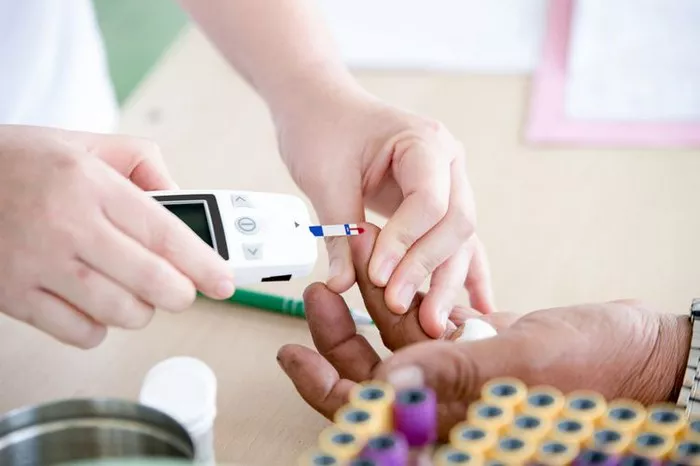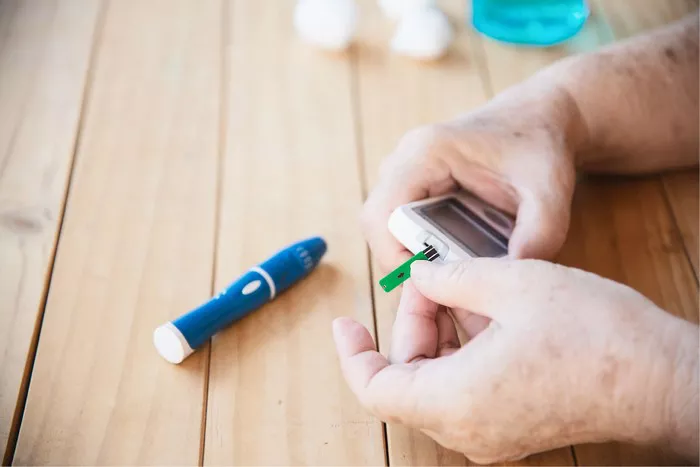In the realm of healthcare, terms like “blood glucose” and “blood sugar” are often used interchangeably, yet they represent distinct concepts with unique implications for health and disease. While both are crucial indicators of metabolic function, understanding the differences between blood glucose and blood sugar is essential for accurate communication and effective management of conditions such as diabetes mellitus. In this comprehensive article, we delve into the fundamental distinctions between blood glucose and blood sugar, their physiological roles, measurement methods, and clinical significance.
1. Blood Glucose:
Blood glucose refers specifically to the concentration of glucose molecules (a type of sugar) present in the bloodstream at a given time. Glucose is a simple sugar that serves as the primary source of energy for cells throughout the body, particularly in the brain, muscles, and other vital organs. Glucose is derived from the digestion and breakdown of dietary carbohydrates, including sugars and starches, and is transported via the bloodstream to cells where it is utilized for energy production through cellular respiration.
2. Blood Sugar:
Blood sugar is a broader term that encompasses various forms of sugars (carbohydrates) present in the bloodstream, including glucose, fructose, and galactose. While glucose is the most abundant and readily measurable sugar in the blood, other sugars may also contribute to the overall blood sugar concentration to a lesser extent. Blood sugar levels can fluctuate in response to dietary intake, hormonal fluctuations, physical activity, stress, and metabolic processes, reflecting the dynamic interplay between carbohydrate metabolism and homeostasis.
3. Key Differences:
While blood glucose and blood sugar are related concepts, there are key distinctions between the two:
- Composition: Blood glucose specifically refers to the concentration of glucose molecules in the bloodstream, whereas blood sugar encompasses various sugars present in the blood, including glucose, fructose, and galactose.
- Primary Component: Glucose is the predominant sugar in the bloodstream and serves as the primary source of energy for cellular metabolism. Other sugars present in the blood, such as fructose and galactose, may be derived from dietary sources or metabolic processes but typically contribute to a smaller proportion of total blood sugar levels.
- Measurement: Blood glucose levels are typically measured in units of milligrams per deciliter (mg/dL) or millimoles per liter (mmol/L) using a glucose meter and fingerstick blood samples. Blood sugar levels, on the other hand, may be measured using various methods, including enzymatic assays, spectrophotometry, or chromatography, depending on the specific sugars of interest.
- Clinical Significance: Blood glucose levels are of particular interest in the diagnosis and management of conditions such as diabetes mellitus, where abnormal glucose metabolism can lead to hyperglycemia (elevated blood glucose levels) or hypoglycemia (low blood glucose levels). Blood sugar levels, while relevant, may have broader implications for metabolic health and nutritional status beyond glucose metabolism alone.
4. Physiological Roles:
Both blood glucose and blood sugar play crucial roles in metabolic function and cellular energy metabolism:
- Blood Glucose: Glucose is the primary fuel source for cellular metabolism, providing energy for various physiological processes, including ATP production, glycolysis, and oxidative phosphorylation. Glucose is essential for maintaining normal brain function, muscle contraction, and overall metabolic homeostasis.
- Blood Sugar: While glucose is the predominant sugar in the bloodstream, other sugars such as fructose and galactose may also contribute to blood sugar levels to a lesser extent. These sugars may be derived from dietary sources or metabolic pathways, and their presence in the blood reflects ongoing carbohydrate metabolism and homeostasis.
5. Measurement Methods:
The measurement of blood glucose and blood sugar levels typically involves different techniques and methodologies:
- Blood Glucose Measurement: Blood glucose levels are commonly measured using a glucose meter and fingerstick blood samples obtained from capillary blood. Glucose meters utilize enzymatic reactions to quantify the concentration of glucose in the blood sample, providing rapid and convenient point-of-care testing for individuals with diabetes.
- Blood Sugar Measurement: Measurement of blood sugar levels may involve more complex laboratory techniques, including enzymatic assays, spectrophotometry, or chromatography, depending on the specific sugars of interest. These methods may require venous blood samples obtained through phlebotomy and are typically performed in clinical laboratories.
6. Clinical Significance and Health Implications:
Abnormalities in blood glucose and blood sugar levels can have significant implications for health and disease, particularly in the context of conditions such as diabetes mellitus:
- Hyperglycemia: Elevated blood glucose levels, known as hyperglycemia, are a hallmark feature of diabetes mellitus and can lead to complications such as cardiovascular disease, neuropathy, nephropathy, and retinopathy if left untreated. Hyperglycemia may result from insulin deficiency, insulin resistance, or impaired glucose tolerance.
- Hypoglycemia: Low blood glucose levels, known as hypoglycemia, can occur in individuals with diabetes who use insulin or certain medications to lower blood sugar levels. Hypoglycemia can cause symptoms such as dizziness, confusion, sweating, and loss of consciousness and requires prompt treatment to prevent complications.
- Nutritional Status: Blood sugar levels may also reflect an individual’s nutritional status and dietary intake, particularly in the context of carbohydrate metabolism and energy balance. Monitoring blood sugar levels can provide insights into dietary habits, glycemic control, and nutritional adequacy.
7. Conclusion:
In conclusion, while blood glucose and blood sugar are related concepts, they represent distinct physiological parameters with unique roles in metabolic function and health. Understanding the differences between blood glucose and blood sugar is essential for accurate communication, interpretation of laboratory results, and effective management of conditions such as diabetes mellitus. By recognizing the nuances between these terms and their implications for health and disease, healthcare providers and individuals alike can better navigate the complexities of metabolic health and optimize patient care.


























